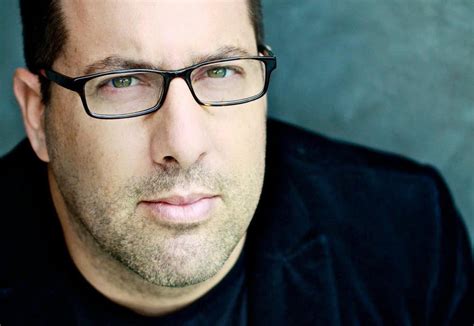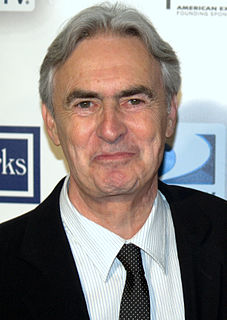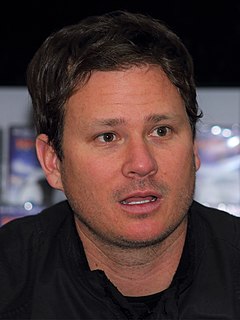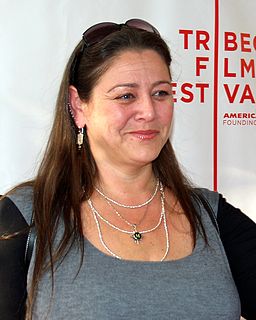Ein Zitat von David Lynch
Der Spielfilm hat sich stark verändert. Es gibt keine Kunsthäuser mehr und die Leute zeigen in den großen Kinos jetzt eine bestimmte Art von Kino, das für mich nicht wirklich gut ist, und wenn ich einen Spielfilm machen würde, dachte ich, ich würde in LA und New York spielen eine Woche lang und gehe dann direkt zum Fernsehen.
Verwandte Zitate
Ich denke, die Kraft des Kurzfilms wird unglaublich unterschätzt. Es ist viel einfacher, jemanden dazu zu bringen, sich einen 15-minütigen Film anzusehen, als einen abendfüllenden Spielfilm. In diesen 15 Minuten haben Sie die Möglichkeit, Ihre Stimme als Künstler zum Ausdruck zu bringen und hoffentlich mit Ihrem Publikum in Kontakt zu treten. Wenn Sie versuchen, zum ersten Mal Spielfilmregisseur zu werden, ist ein Kurzfilm, der zeigt, dass Sie die Themen und Konzepte des Films verstehen, bei dem Sie Regie führen möchten, eine Selbstverständlichkeit. Ganz gleich, ob es sich um Kooperationspartner oder potenzielle Investoren handelt, Filmemachen ist eine Form der visuellen Kunst, daher braucht man natürlich Bilder, um sie zu zeigen!
Es [Fernsehen] ist der Krebs des Films. Das ist der Grund, warum Menschen nicht zum Filmen erzogen werden können. In den späten 60ern erwarteten wir, jede Woche ein oder zwei Filme zu sehen und angeregt, aufgeregt und inspiriert zu werden. Und das haben wir getan. Jede Woche für Woche. Antonioni, Goddard, Truffaut – diese endlose Liste von Menschen. Und dann kommen Fernsehen und Heimvideos. Ich weiß genau, wie man für die große Leinwand arbeitet, aber es spielt keine Rolle, was ich über die Kunst des Filmemachens im Vergleich zum Fernsehen halte.
Die meisten Leute schauen sich einen Spielfilm an und sagen: „Das ist nur ein Film.“ Für mich gibt es keine Grenze oder Mauer zwischen Fiktion und Dokumentarfilm. In Dokumentarfilmen muss man sich mit echten Menschen und ihren echten Gefühlen auseinandersetzen – man arbeitet mit echtem Lachen, Glück und Traurigkeit. Der Versuch, die Realität widerzuspiegeln, ist nicht dasselbe wie die Realität selbst. Deshalb denke ich, dass es viel schwieriger ist, einen guten Dokumentarfilm zu machen als einen guten Spielfilm.




































